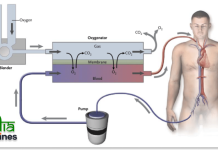
Smoking has long been recognized as a leading cause of various health issues, including respiratory diseases, cancer, and cardiovascular problems. Among the numerous detrimental effects of smoking, one of the most significant is its impact on heart health. In this blog, we will explore the connection between smoking and heart failure, delving into the mechanisms through which smoking contributes to this serious condition, examining relevant research findings, and discussing the broader implications for public health.
Understanding Heart Failure
Heart failure is a chronic condition in which the heart is unable to pump blood effectively, leading to inadequate blood flow to meet the body’s needs. It can result from various underlying conditions, including coronary artery disease, hypertension, and diabetes. Symptoms of heart failure include shortness of breath, fatigue, swelling in the legs and ankles, and fluid retention.
The heart’s ability to function properly is critical for overall health and well-being. When heart failure occurs, it can significantly impact a person’s quality of life and increase the risk of mortality. Given the severity of heart failure, understanding its causes and risk factors is crucial for prevention and management.
The Link Between Smoking and Heart Failure
Smoking is a major risk factor for cardiovascular diseases, including heart failure. The harmful chemicals in tobacco smoke, such as nicotine, carbon monoxide, and tar, contribute to the development of atherosclerosis, a condition characterized by the buildup of fatty deposits (plaques) in the arteries. Atherosclerosis can lead to coronary artery disease, which is a primary cause of heart failure.
Mechanisms of Smoking-Induced Heart Failure
Several mechanisms explain how smoking contributes to heart failure:
- Atherosclerosis and Coronary Artery Disease:
- Smoking accelerates the formation of atherosclerotic plaques in the arteries. These plaques can narrow or block the coronary arteries, reducing blood flow to the heart muscle. When the heart muscle is deprived of oxygen and nutrients, it can become damaged and weakened, eventually leading to heart failure.
- Hypertension:
- Nicotine and other chemicals in tobacco smoke stimulate the release of adrenaline, increasing heart rate and blood pressure. Chronic high blood pressure (hypertension) forces the heart to work harder to pump blood, which can cause the heart muscle to thicken and become less efficient over time. This increased workload can contribute to the development of heart failure.
- Oxidative Stress and Inflammation:
- Smoking generates oxidative stress and promotes inflammation in the cardiovascular system. These processes damage blood vessels and heart tissue, contributing to the development of atherosclerosis and weakening the heart muscle.
- Impaired Oxygen Transport:
- Carbon monoxide in tobacco smoke binds to hemoglobin in red blood cells, reducing the blood’s ability to carry oxygen. This impaired oxygen transport can lead to hypoxia (low oxygen levels) in the heart muscle, causing damage and increasing the risk of heart failure.
- Arrhythmias:
- Smoking increases the risk of developing arrhythmias (abnormal heart rhythms). Certain arrhythmias can reduce the heart’s efficiency in pumping blood, contributing to heart failure.
Research Findings on Smoking and Heart Failure
Extensive research has established a clear link between smoking and heart failure. Several key studies highlight the impact of smoking on heart health:
- Framingham Heart Study:
- The Framingham Heart Study, a long-term, large-scale study of cardiovascular disease risk factors, found that smokers had a significantly higher risk of developing heart failure compared to non-smokers. The study also revealed that the risk of heart failure increased with the number of cigarettes smoked per day and the duration of smoking.
- Atherosclerosis Risk in Communities (ARIC) Study:
- The ARIC study examined the relationship between smoking and heart failure in a diverse population. The findings indicated that both current and former smokers had an increased risk of heart failure compared to never smokers. The study also showed that quitting smoking reduced the risk of heart failure, highlighting the benefits of smoking cessation.
- Meta-Analyses and Systematic Reviews:
- Meta-analyses and systematic reviews of multiple studies have consistently shown that smoking is a significant risk factor for heart failure. These analyses provide robust evidence supporting the link between smoking and heart failure, reinforcing the need for public health interventions to reduce smoking rates.
Broader Implications for Public Health
The relationship between smoking and heart failure has profound implications for public health. Reducing smoking rates can significantly decrease the incidence of heart failure and improve overall cardiovascular health. Public health initiatives aimed at smoking prevention and cessation are essential to achieving this goal.
Smoking Cessation Programs
Smoking cessation programs are critical in helping individuals quit smoking and reduce their risk of heart failure. These programs often include behavioral counseling, nicotine replacement therapy, and medications to support individuals in their efforts to stop smoking. The success of smoking cessation programs can be enhanced through the involvement of healthcare providers, who play a vital role in encouraging and supporting patients in their journey to quit smoking.
Policy Measures
Policy measures, such as increasing tobacco taxes, implementing smoking bans in public places, and restricting tobacco advertising, have proven effective in reducing smoking rates. These measures create an environment that discourages smoking and supports individuals who are trying to quit. Additionally, public awareness campaigns that highlight the health risks of smoking, including its impact on heart failure, can further motivate individuals to quit smoking and prevent others from starting.
Conclusion
The evidence is clear: smoking is a significant risk factor for heart failure. The harmful chemicals in tobacco smoke contribute to the development of atherosclerosis, hypertension, oxidative stress, and inflammation, all of which play a role in the onset of heart failure. Research studies consistently demonstrate the strong link between smoking and heart failure, underscoring the importance of smoking cessation and prevention efforts.
Addressing the smoking epidemic is essential for improving public health and reducing the burden of heart failure. Comprehensive smoking cessation programs, effective policy measures, and public awareness campaigns are crucial components of a successful strategy to combat smoking-related heart failure. By reducing smoking rates, we can make significant strides in preventing heart failure and promoting a healthier future for all.
In summary, smoking is a major contributor to heart failure, and taking steps to quit smoking or avoid starting in the first place is one of the most impactful actions individuals can take to protect their heart health. Public health efforts must continue to focus on reducing smoking rates to mitigate the devastating impact of heart failure and other smoking-related diseases.



































